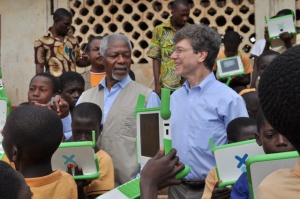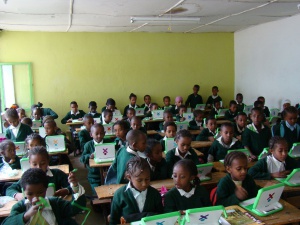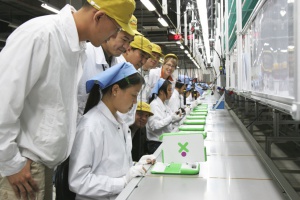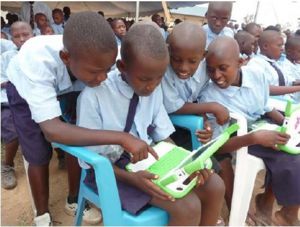The OLPC Wiki
Our Wiki is now an archive of documentation.
- 20th July 2024 - upgrade to web server. editing is enabled for identified users. Quozl.
- 9th November 2022 - lots of spam from a user registered in 2006, and no other editing has been going on, so editing is disabled. Quozl.
- 23rd November 2021 - we upgraded and moved this Wiki to another server. Quozl.
- 27th October 2021 - we plan to make this Wiki read-only. Quozl.
- 9th December 2013 - user account registration turned off due to persistent spam, you have to contact us. Quozl.
| english | عربي | پښتو | български | deutsch | español | français | kreyòl ayisyen | italiano | 日本語 | 한국어 | монгол | Bahasa Melayu | नेपाली | norsk | português | română | русский | kinyarwanda | türkçe | 中文 | 繁體中文 | HowTo [ID# 302845] +/- |
|
The One Laptop per Child non-profit develops a low-cost laptop—the "XO Laptop"—to revolutionize how we educate the world's children. Our mission is to provide educational opportunities for the world's most isolated and poorest children by giving each child a rugged, low-cost, low-power, connected laptop; and software tools and content designed for collaborative, joyful, self-empowered learning. OLPC has produced XO laptops for more than 3 million children around the world, the majority of them in Uruguay, Peru, Rwanda, Haiti, Australia, Mongolia and the United States. These laptops all run Sugar and Fedora Linux, and have customized software and content builds developed by their national deployment teams in collaboration with OLPC staff. We maintain a regular update of deployment information. |
|
|
|


Get Involved
This Wiki contains project pages describing work and ideas related to OLPC. Learn how to get involved with those already in progress. You can also ask other community members about ways to contribute.
See our latest community news and accomplishments.
Overviews
There are overview pages dedicated to hardware, software, education and content. The XO's iconic software interface, Sugar, has its own human interface guidelines, here and on the Sugar Labs wiki. There are also discussion pages on issues of deployment and country-specific discussions.
OLPC is designed around five core principles — Child Ownership, Low Ages, Saturation, Connection, and Free and Open Source tools, and each of these have their own portal sections as well.

News and updates
Weekly news · OLPC Planet · News archive +
- Persistent developer key firmware released October 2021 to disable the security systems,
- A build of Android for the XO-4 is available, see Android,
- A community project for using XOs as class or school servers has begun, please get involved, see XS Community Edition,
- The XO Learning Tablet debuted in July, 2013.
- The XO-4 Touch laptop entered production in February, 2013.
- 2012 brought our global community summit Oct 19-21 and follow-on implementers' San Francisco Sugarcamp++ Oct 22-24 -- all were invited to both events!
- The XO-1.75 laptop entered production in February, 2012.
- Uruguay became the first country in the world to achieve one laptop per child, when its President Tabaré Vázquez handed out 400,000 XOs to the remaining school children on October 13, 2009.
- For general news, see some of the OLPC news aggregators, including planet.laptop.org, the OLPC blog, and the independent OLPCNews blog.



